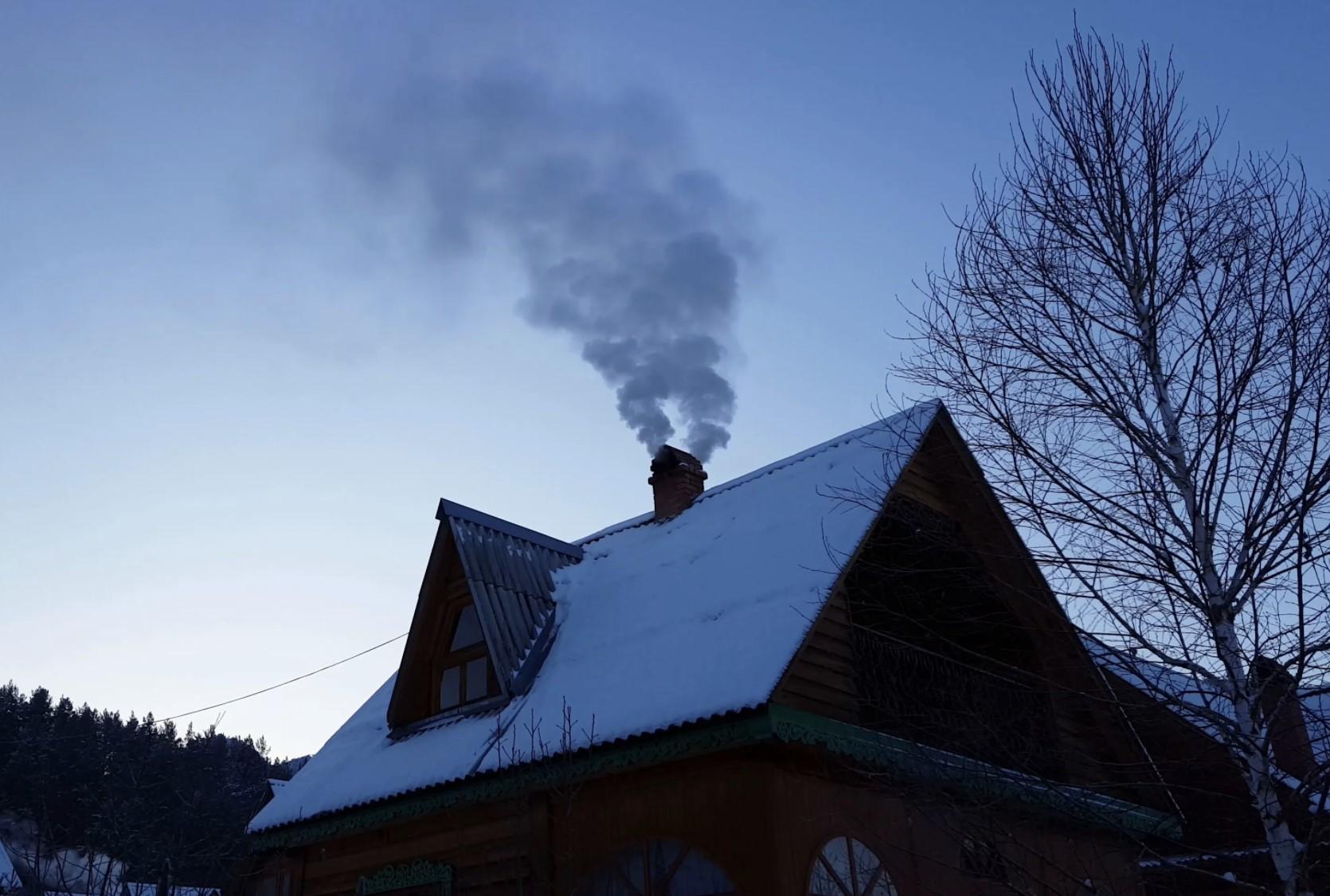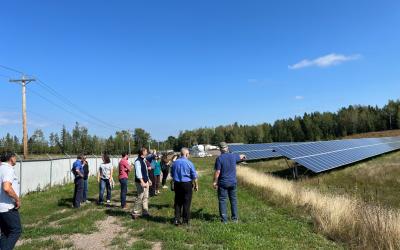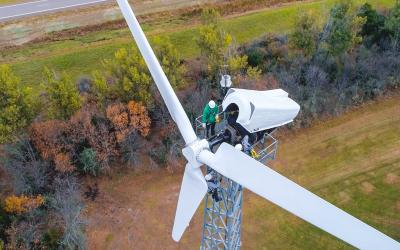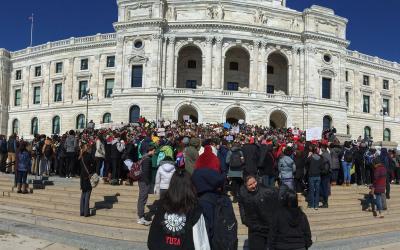On April 1, 2024, Minnesota state government submitted three grant proposals that build on strong momentum for climate action stemming from the launch of the Climate Action Framework and historic climate investments from the 2023 legislative session.
The U.S. Environmental Protection Agency's Climate Pollution Reduction Grants (CPRG) program will distribute $4.6 billion in competitive grants for states, local governments, and Tribes to reduce greenhouse gas emissions and other harmful air pollution. The state's applications were developed throughout 2023 and the first quarter of 2024 with extensive engagement among state agencies, cities, counties, Tribes, businesses, residents, and non-profit organizations.
Minnesotans contributed over 350 project ideas that laid the foundation for the initiatives included in these plans. The result is three ambitious proposals, each laying the groundwork for necessary, transformative change in Minnesota’s transportation, housing, and food sectors to reduce climate pollution while empowering communities across our state.
Resilience, Equity, Affordability, Carbon-free, and Health (REACH) Homes Minnesota
Request: $385 million
A safe, affordable home is the foundation of success for Minnesotans. Meanwhile, climate pollution from Minnesota’s houses and apartments is on the rise as the impacts of climate change continue to threaten stable housing. The REACH Homes Minnesota proposal, submitted by a coalition of Tribes, local governments, and the state, will center the values of resilience, equity, affordability, carbon-free, and health as we connect Minnesotans with climate-friendly housing. Key aspects of the proposal include:
- Leveraging Minnesota Housing’s existing financing programs to apply renewable energy and efficiency upgrades in new and existing multifamily, single-family, and manufactured housing.
- Weatherizing, electrifying, and/or replacing manufactured homes by growing the Weatherization Assistance and related programs.
- Decarbonizing buildings in which the State of Minnesota houses people, including veterans’ homes, hospitals, and correctional facilities.
- Localizing, scaling, and sustaining REACH Homes by collaborating with a coalition of Tribal and local governments and building out the Energy Navigator Program to make it easier for all Minnesotans to access home energy and efficiency incentives.
Minnesota Climate-Smart Food Systems
Request: $200 million
Climate change threatens farming, local economies, food security, and Tribal food sovereignty. We can increase access to food and reduce waste in every corner of Minnesota’s food system by transforming the way we grow, process, transport, store, prepare, and dispose of food. The Minnesota Climate-Smart Food Systems proposal will empower growers, makers, processors, partners, and local communities to build food systems that slash climate pollution while nourishing Minnesotans statewide. Key aspects of the proposal include:
- Supporting climate-smart farming practices by expanding Minnesota’s successful Agricultural Water Quality Certification and Soil Health Financial Assistance programs.
- Accelerating the transition to cleaner refrigerants in small businesses, supermarkets, schools, hospitals, food banks, and corner stores.
- Electrifying the vehicles and equipment we use to use to grow and transport our food.
- Scaling up successful food waste prevention programs that keep valuable nutrients in circulation to feed people and livestock and prevent significant methane emissions.
Developing Regional Infrastructure for Vehicle Electrification (DRIVE) in the Midwest
Request: $39 million
Transportation remains Minnesota's largest source of climate pollution. Electrifying medium- and heavy-duty trucks that transport goods across state lines will be critical to reducing greenhouse gas emissions from this sector. To do so, we will need strong collaboration between states to build a connected electric truck charging network. That’s why the Minnesota Department of Transportation, in collaboration with Wisconsin and Michigan, has submitted the DRIVE Midwest proposal. Key aspects of the proposal include:
- Developing a publicly accessible digital optimization map for EV charger placement.
- Preparing a regional infrastructure plan including short-, medium-, and long-term goals for a publicly accessible multi-use truck charging network.
- Piloting multi-use EV charging hubs in cities offering the most pollution reduction benefits to low-income and disadvantaged communities.
Minnesota believes acting on climate change should also uplift and empower communities across our state. That’s why we’re advancing CPRG proposals that will reduce climate pollution and have a profound positive impact on the lives of Minnesotans.
The EPA will review CPRG applications over the coming months. Winners are expected to be announced by July 2024. By securing this historic funding to improve our housing, food, and transportation systems, we can lower energy bills, create jobs, improve our health and air quality, reduce hunger, and ultimately ensure Minnesota remains a great place to raise a family for generations to come.



